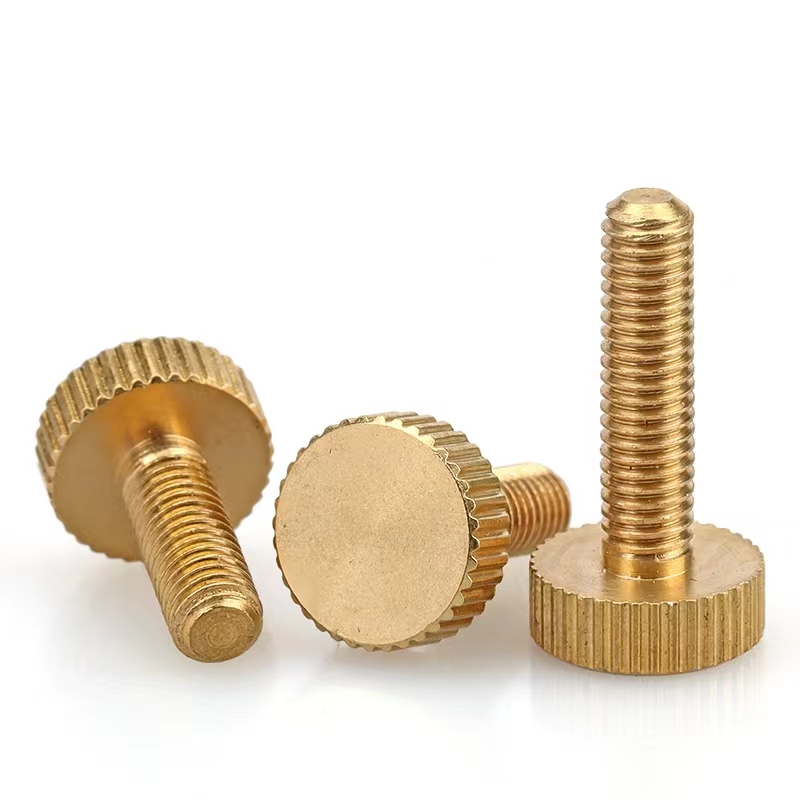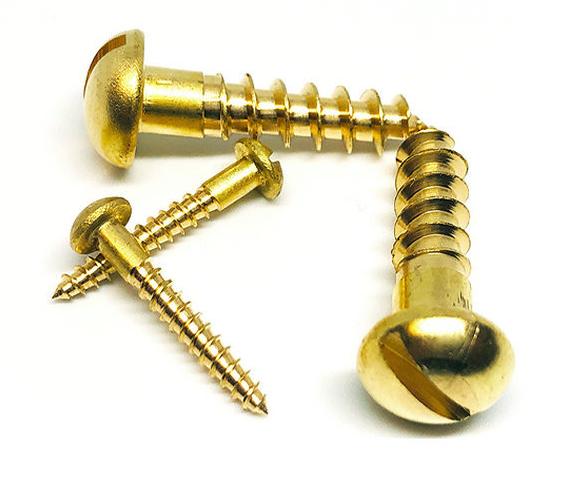To comprehend the differences between brass screws and bronze screws, as well as their advantages and applications across industries, let's first examine the disparity between brass and bronze materials.

What is brass material and bronze material? How are they different?
Brass and bronze exhibit clear discrepancies in terms of composition, properties, and applications. Brass is an alloy composed of copper and zinc. When copper and zinc form the alloy, it is known as ordinary brass, while alloys comprising more than two elements are referred to as special brass. The proportion of copper and zinc can vary, resulting in different types such as 59 copper, 65 brass, 68 brass, and 70 brass. On the other hand, bronze is an alloy of copper and tin, typically containing around 5% to 10% tin. Additionally, binary or multiple alloys of copper with aluminum, silicon, beryllium, and manganese are also classified as special bronzes. Bronze without tin is called tinless bronze. Common types of bronze include tin bronze, aluminum bronze, lead bronze, phosphorous bronze, beryllium bronze, nickel-aluminum bronze, manganese bronze, and silicon bronze.
In terms of characteristics and applications, brass possesses high strength, hardness, corrosion resistance, and wear resistance. It is commonly employed in the manufacturing of valves, water pipes, air conditioning pipes, radiators, and other components. Brass exhibits excellent machinability, making it suitable for high-precision part production using automatic lathes and CNC lathes. Bronze, in addition to high corrosion resistance, abrasion resistance, and electrical conductivity, possesses good lubricity and favorable mechanical properties. It is primarily used in applications such as turbine-wearing parts, gears, bearings, shaft sleeves, precision springs, electric contact elements, and welding electrodes. Bronze is also utilized in the production of explosion-proof tools, navigation compasses, and other critical components.
Understanding Brass Screws and Bronze Screws
Brass screws are simply screws made of brass material. Various types of screws made from brass are encountered in daily life, including mechanical screws like Philips countersunk head screws, self-tapping screws such as slotted tapping screws or Philips self-tapping screws, thumb screws like knurled flat head screws, and set screws such as hex socket set screws.

Advantages of Brass Screws
Brass screws possess greater conductivity compared to screws made of stainless steel, carbon steel, and other materials. Additionally, brass exhibits excellent mechanical properties, wear resistance, and recyclability. Consequently, many customers prefer brass material over other copper materials.
Bronze screws, on the other hand, are highly resistant to acid, alkali, and high temperatures. When specific environmental requirements necessitate it, customers often opt for bronze screws despite their higher price compared to brass screws.
Industries Where Brass Screws are Primarily Used
Brass screws find widespread usage in industries such as cables, electrical and electronic components, and construction materials, where numerous alloy compositions are employed. The communication industry, in particular, extensively utilizes brass screws due to their excellent conductivity. Furthermore, the soft texture of copper screws minimizes the risk of damaging the threaded components during repeated disassembly, making them ideal for communication and electronic equipment. Brass screws also have wide-ranging applications in electrical appliances, light industry, machinery manufacturing, construction, and other fields.
Industries Where Bronze Screws are Mainly Used
Bronze screws are primarily utilized in mechanical equipment, power generation, iron and steel, metallurgy, petroleum, chemical industry, machine tools, textiles, automobiles, motors, precision instruments, mining machinery, construction machinery, railways, and other sectors.

